Welcome to the Department of Biostatistics at the University of North Carolina. We are home to some of the finest minds in this ever-growing and changing field, at one of the leading universities in the nation. As Chair and professor, I am privileged to collaborate with our faculty on one of the most important undertakings we can contribute to society – that of training new, brilliant leaders to be the future of biostatistics.
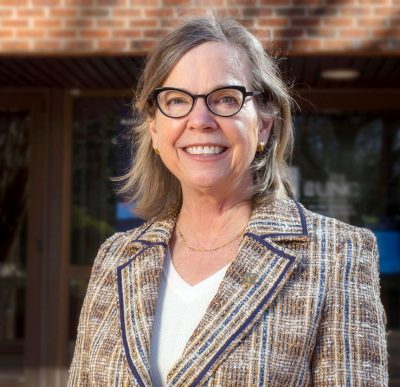
Dr. Lisa LaVange
I am a devoted Tar Heel myself, having earned my undergraduate (math) and doctoral (biostatistics) degrees at UNC. My training in biostatistics here has opened so many doors, leading to rewarding roles in the public and private sectors, including academia, government, non-profit research, and the pharmaceutical industry. The network of colleagues and lifetime mentors, first formed during graduate school and expanded over the years through so many UNC connections, has benefitted my career at every turn. And now my career calls me back home to UNC to chair this remarkable department, where faculty, researchers and students are engaged in highly impactful work while advancing their education.
What my journey affirms – and what I see every day here at UNC – is that biostatistics can make sense of this world and change it for the better. The world both needs and seeks leaders who can provide clear-eyed, data-driven analysis that can inform significant solutions to society’s challenges. The pandemic we’ve been living through is a case study in just how critical a role biostatisticians play, from designing clinical trials to generate evidence that vaccines and therapies work against the disease, to mining and understanding empirical data and identifying protocols that reduce contagion. Biostatisticians are key players on every team involved in the public health response to this current crisis.
If you love making sense of data; enjoy collaborating with a diverse, inclusive, engaged and like-minded community; and seek a meaningful career in a high-impact and important field, you are our kind of person! We would welcome the opportunity to hear more about your aspirations, and to tell you more about why the Gillings School of Global Public Health and the Department of Biostatistics could be right for you.
–Lisa LaVange, professor and chair of the Department of Biostatistics
Do you…
- Want to solve some of the most challenging problems facing the world and your community?
- Like math and maybe even see the world in numbers?
- Care about improving health and the environment?
- Want to drive trends in artificial intelligence, machine learning and big data?
- Enjoy working with people from different backgrounds and disciplines?
- Want to be part of a field where your skills will be in great demand to do work that matters?
- See the need for meaningful data to inform the public about a crisis like a pandemic?
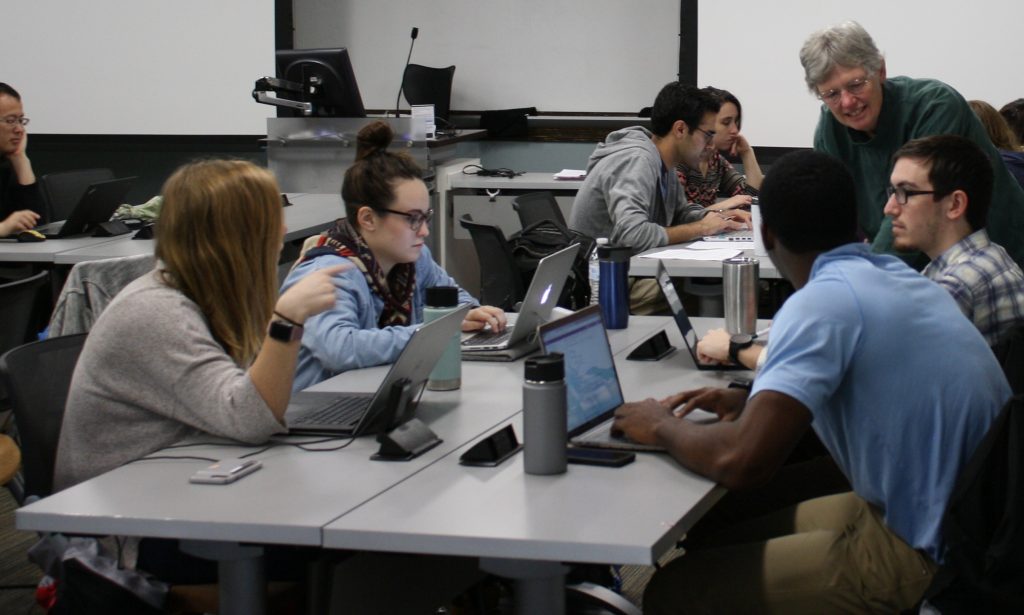
Ignite your graduate studies with our boot camp.
There’s no better time to study biostatistics
If you answered “yes” to any of those questions, biostatistics might be right for you. Biostatistics is at the epicenter of solving virtually every health and environmental problem in the world. Our faculty members, often in collaboration with students, have contributed fundamental insights about such diverse areas as:
- Creating medications for schizophrenia;
- Decoding the importance of different genes for diseases that threaten health;
- Bringing a new understanding of known and emerging diseases;
- Assessing which cancer treatments are best for different kinds of cancer;
- Creating new methods to speed the pace of clinical trials;
- Discovering how to help relieve patients’ pain without creating addiction; and
- Helping to get new drugs safely to market so patients benefit faster.
- Helping to design and analyze vaccine efficacy trials.
Biostatisticians bring essential skills and knowledge to uncover the secrets of health, disease and the future of the planet. What could be more important?
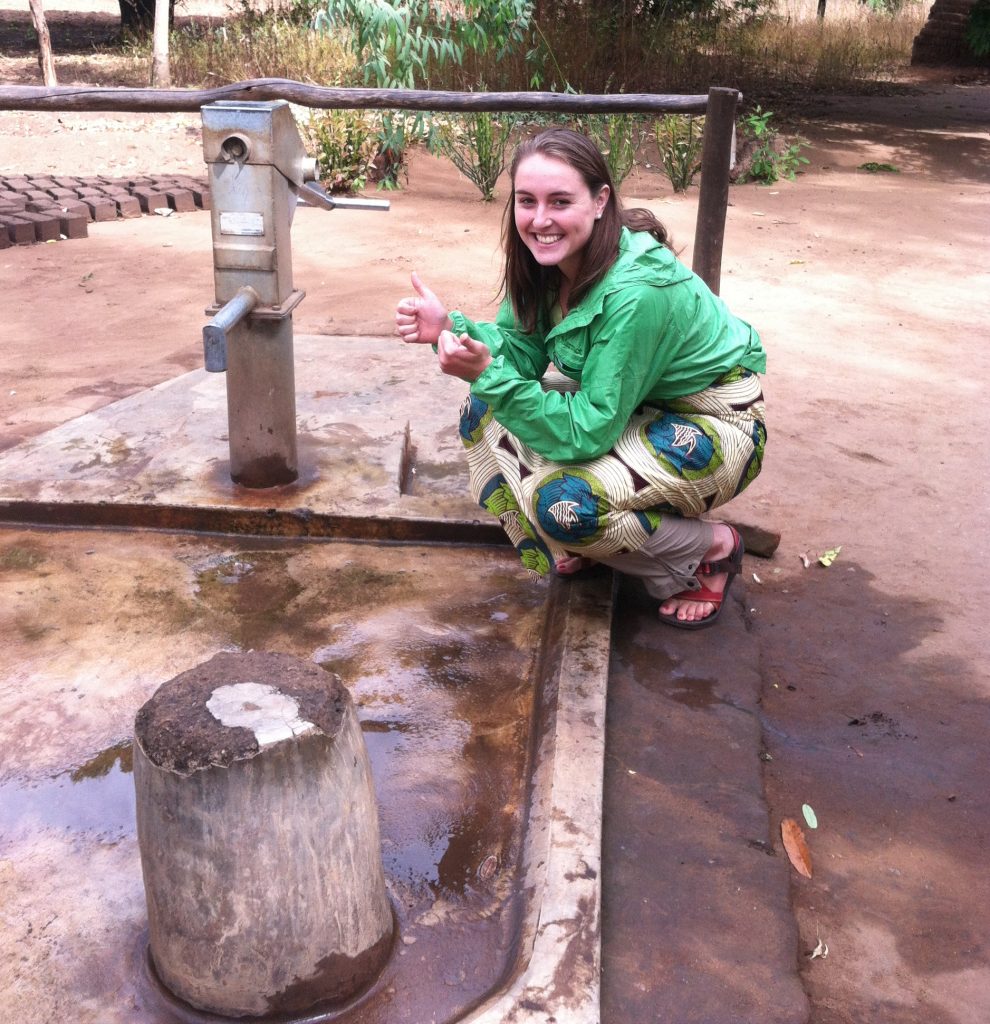
Alumna Camille Morgan checks a borehole in a Malawi village.
Make a difference
The impact and importance of our field continues to grow as we find more ways to harness artificial intelligence, machine learning and predictive modeling in service of making our communities and our planet healthier places. As the COVID 19 pandemic has so vividly illustrated, the world needs and wants more creative problem-solvers to tackle its important challenges. Biostatisticians are in demand, and we are proud of our long history of training the very best. Through your work on faculty research projects – where you often will have an opportunity to pursue your own special interest areas – you have a chance to make an impact while in school and long afterward.
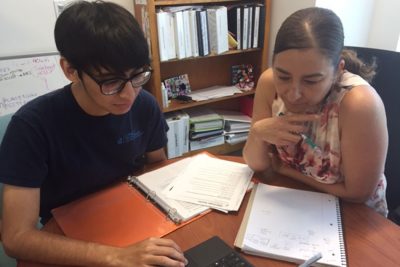
Biostatistics student Jose Lopez (left) works with Associate Professor Dr. Sotres-Alvarez on the Hispanic Community Health Study / Study of Latinos project.
Who we are
Our Department is one of the leading academic research departments of biostatistics in the world. 2019 marks our 70th year of:
- Working on the cutting edge of new developments in data science, health and the environment;
- Developing tools that are used by people everywhere; and
- Partnering with thought leaders and institutions around the world on major research initiatives while producing the best-trained professionals in the field.
Our School is a great environment for students to learn and gain experience working with some of the world’s leading biostatisticians.
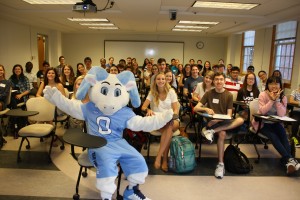
New biostatistics students meet Rameses.
What’s special about us?
Our success is based on three core attributes:
- A brilliant, collegial and diverse faculty;
- The brightest and most motivated students from around the world; and
- A rich and robust array of real-time research projects on which our students and teachers actively collaborate.
Our students are key partners in our research engine. Here, you will have many opportunities to do important work while pursuing rigorous, challenging, state-of-the-art training. Our students work collaboratively with faculty members on their projects, and often become co-authors on papers and presentations with opportunities to present their work at professional meetings. This kind of active engagement helps prepare students for the next steps on their personal journeys.
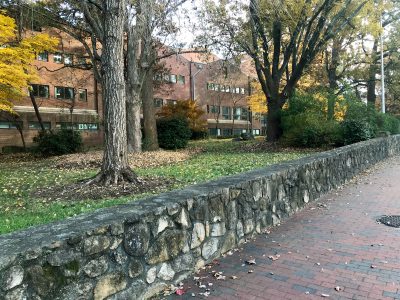
The autumn sun sets on McGavran-Greenberg Hall and its low, stone walls.
UNC-Chapel Hill is special
The low, stone walls around campus are a metaphor for how easy it is to learn from and work with other programs and people across campus. Our faculty and students work closely with colleagues in medicine, pharmacy, nursing, dentistry, biomedical engineering, statistics, computer science and other departments, and the physical proximity makes it easier. Only a few U.S. universities offer that kind of access, giving our students unparalleled opportunities.
Exciting Courses
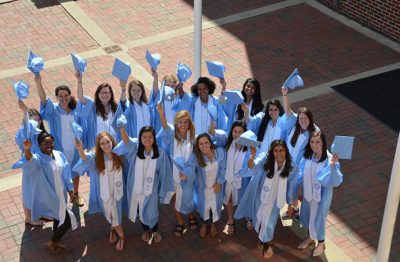
New graduates celebrate.
Our graduate and undergraduate students take a range of interesting and challenging courses in:
- Biostatistics and data science;
- Artificial intelligence;
- Genomics;
- Clinical trial;
- Time-to-event analysis;
- Statistical theory;
- Analytics;
- Study design;
- Biomedicine; and
- Public health.
And that’s just the beginning! There’s a lot to do outside the classroom too!
Opportunites for Funding
Many of our graduate students receive at least partial financial support, which comes from numerous training grants our faculty members receive in big data biomedicine, cancer genomics, neuroimaging and environmental statistics. Faculty research projects currently funding graduate students include finding new methods of producing and reading mammograms, treatment of HIV/AIDS, cancer and cardiovascular disease, global health challenges, such as maternal and infant mortality, use of opioid medications safely without addiction, statistical genomics, precision health and many others too numerous to mention. That kind of engagement prepares our graduates to pursue a wide array of careers in every aspect of biostatistics and data science. It is no surprise that our graduates have little difficulty finding meaningful jobs that can make a difference.
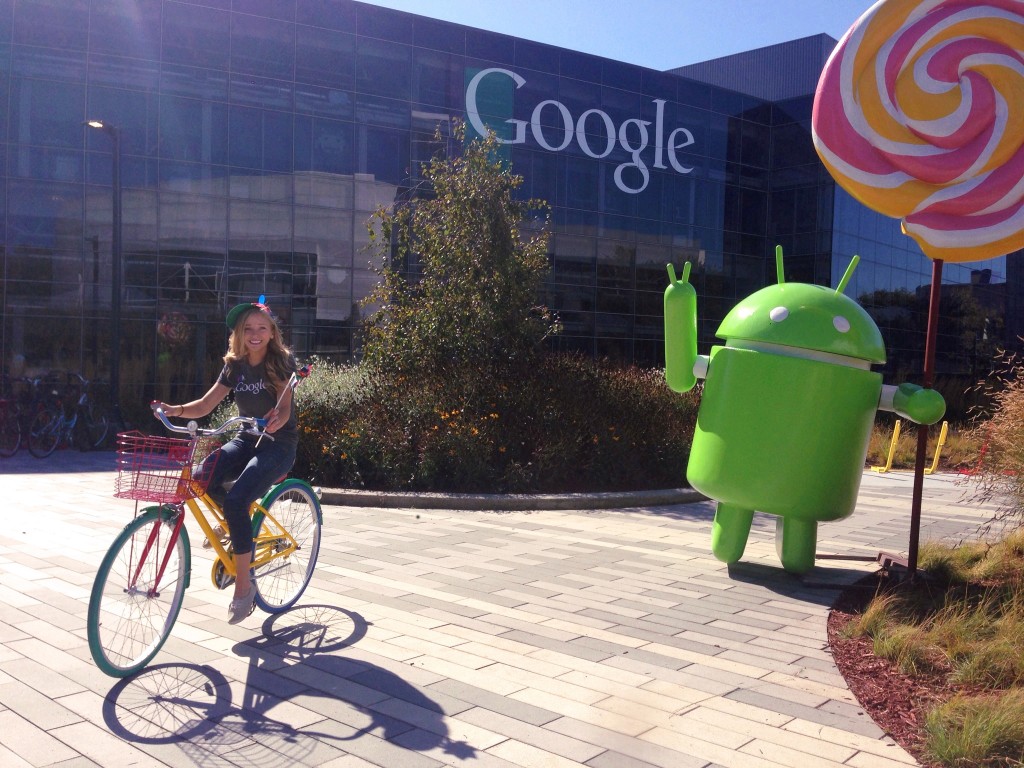
Biostatistics alumna Amy Richardson takes a break at her workplace. (Contributed photo)
Life after Gillings
Today, our graduates are faculty members at leading universities around the world, directors of units at the National Institute of Health, Food and Drug Administration and Centers for Disease Control and Prevention, and leaders in companies and in the health care industry around the world. And, not surprisingly, our graduates are increasingly being sought by technology firms.
We may be right for you
If you’re thinking about a career in biostatistics and data science, please consider Gillings Biostatistics. I hope you’ll be impressed by the academic rigor and flexibility of our program and the warm collegiality of our faculty, staff, students and alumni. We work hard, but we also enjoy life and one another.
We’ve put a lot of detailed information on our web pages, and I hope you’ll explore them. We look forward to hearing from you.
